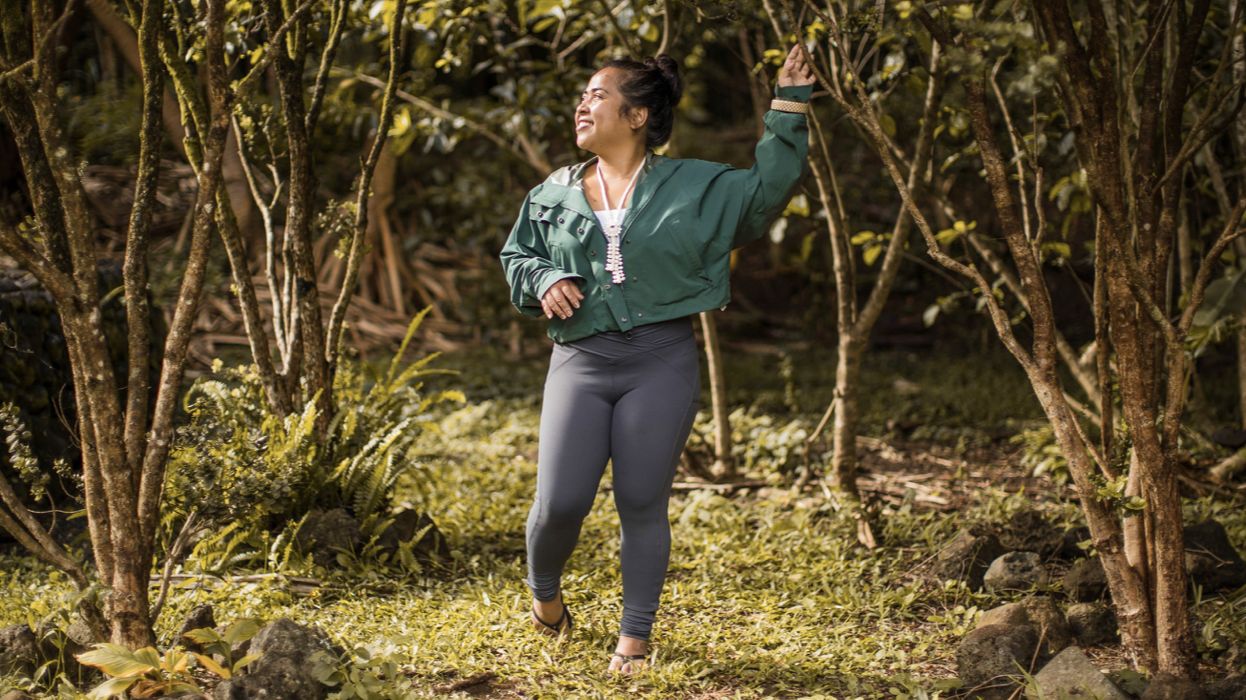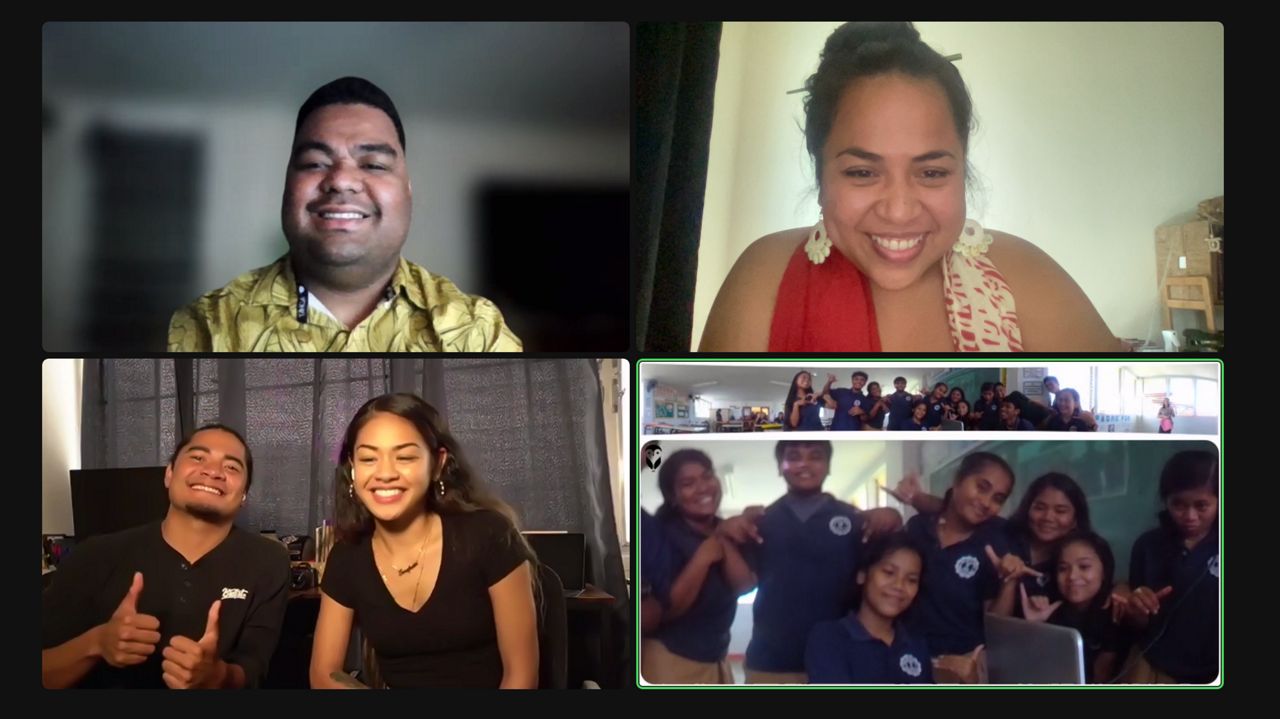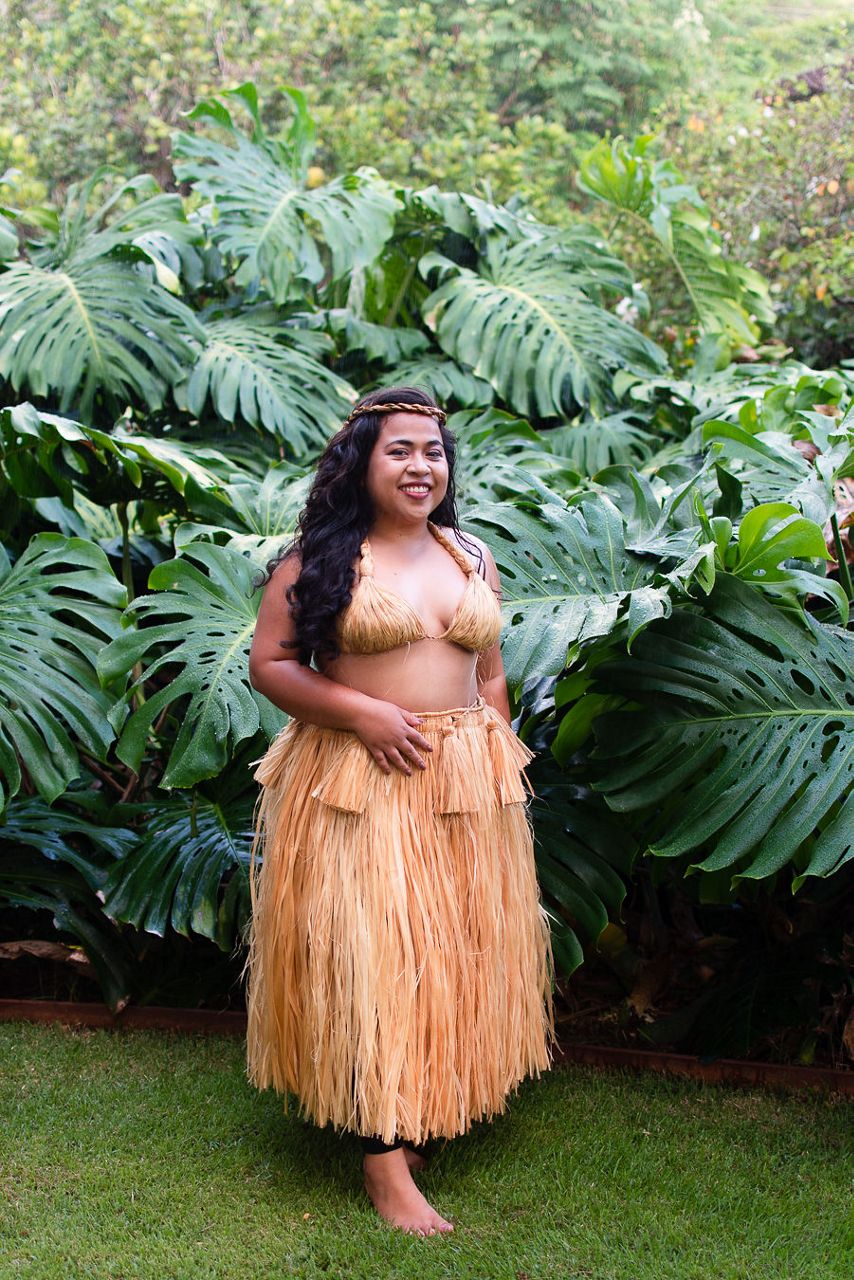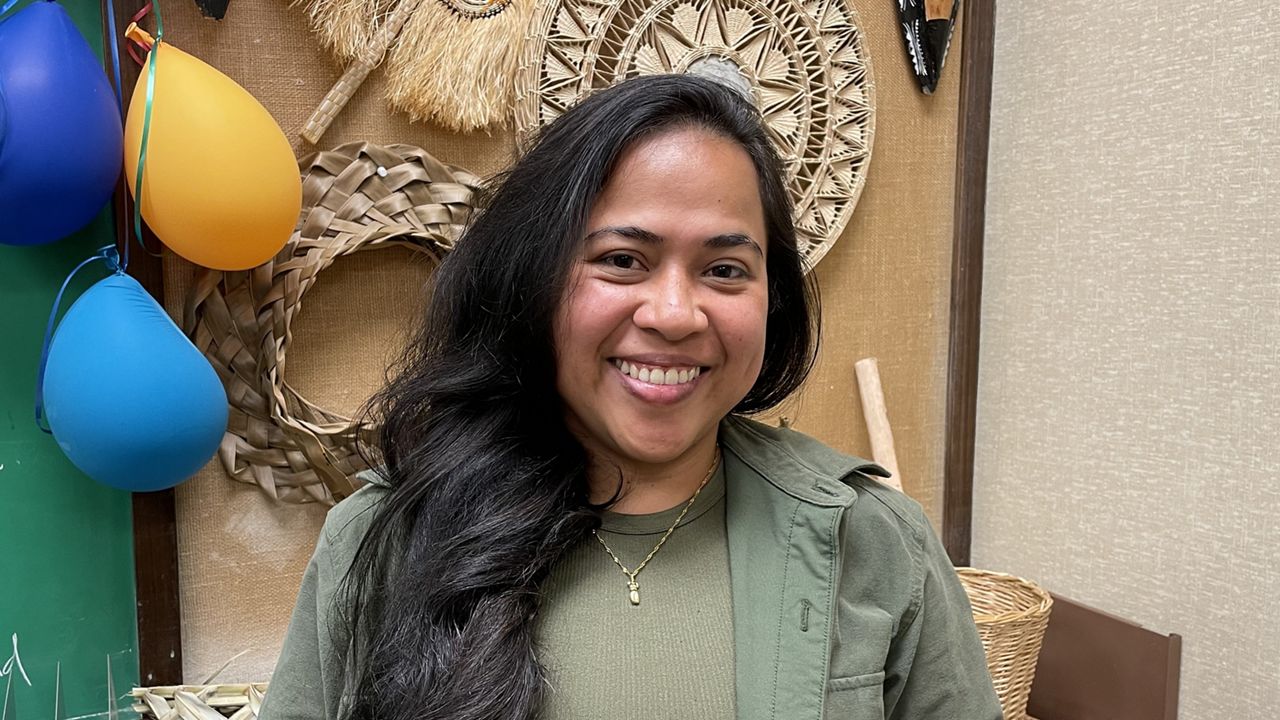Carol Ann Carl is a storyteller, scholar and advocate for Micronesians. Home for Carl is Pohnpei, an island in the Federated States of Micronesia, but she currently lives in Hawaii, while studying at the University of Hawaii at Manoa.
Micronesians are navigators, it’s in their genealogy and DNA, explained Carl. As a navigator, she sees herself voyaging to Hawaii and, later in life, back to Pohnpei to uplift her community with the knowledge and experience she is gaining in school and through her advocacy work.
“One of the proverbs in Pohnpei translates roughly ‘Pohnpei is the place to voyage from and voyage to,’” said Carl.
The 28-year-old talked to Spectrum News Hawaii from her office in Moore Hall at the UH Manoa campus, which she shares with a student from Yap, which is also part of the Federated States of Micronesia. The walls are filled with Micronesian treasures, including a Chuukese mask, a Marshallese handicraft, a handmade hat and a basket woven by Carl.
Carl’s parents met in Hawaii, but they returned to Pohnpei for her birth. Shortly after, they went back to Hawaii. At age 11, Carl and her family returned again to Pohnpei.
Back in Micronesia, people asked her “Where are you from?” and she would say, “Hawaii.” But after visiting and hearing the stories of the historical and natural sites of Pohnpei — Nan Madol (an ancient megalithic site), waterfalls, petroglyphs and more — she embraced her heritage.
“After hearing these stories over and over and over again, I realized this place is beautiful, and I’m an extension of that beauty, wherever I find myself in the world,” said Carl.
Scholar
In 2015, Carl again returned to Hawaii for her undergraduate studies at the University of Hawaii at Manoa, eventually earning a bachelor’s in biochemistry. She is now working on a master’s in Pacific Island studies. Her research focuses on adapting ancestral voyaging knowledge to deal with climate change.
She sees a connection between the traditional voyaging practices of Micronesians, who for thousands of years navigated between the many islands in the western Pacific Ocean by using the stars and other way-finding techniques, and the more recent migration of Micronesians to Hawaii.
Traditionally, Micronesians sailed across the region to trade, since each island had localized skills and resources. Now, some Micronesians are coming to Hawaii because of difficulties brought by climate change, as well as a need to access healthcare, education and housing. In other words, they are migrating to Hawaii to access resources.
“It’s intrinsic for a navigator to be migratory,” said Carl. She said navigators have a purpose when they leave their island and a purpose when they go back.

Advocate
Carl’s plan had been to go home after graduating from UH Manoa in the summer of 2020. But when the COVID-19 pandemic began in March 2020, Carl was cut off from Pohnpei, because the Federated States of Micronesia closed its borders to all travelers, including citizens.
Instead, she started working as a program assistant for the Kōkua Kalihi Valley Comprehensive Family Services, a federally qualified health center that mostly serves Asian and Pacific Islander patients. She called individuals that tested positive for COVID-19 at the clinic and provided them with resources to help them isolate, since many of them lived in multigenerational households.
She also worked on KKV’s nature preserve, growing plants used for traditional medicines, which people could harvest to fight COVID-19. The leaves of one such plant, Premna serratifolia, which grows in Pohnpei, are boiled and then people stand over it to bathe in its steam.
As part of KKV’s food RX program, she delivered nutritious and culturally appropriate foods to Pacific Islanders, like breadfruit and turmeric, to help with chronic medical conditions.
“It was such a treat to be able to see community response efforts that were culturally tailored to the different populations that we were serving,” said Carl.
Through her work with the health center, she helped young Micronesians growing up in public and low-income housing. She said many of the kids she worked with saw being Micronesian as a “very negative label” associated with stereotypes. However, she wants them to have pride for their roots — just as she learned to do when she moved to Pohnpei at age 11.
Originally, Carl had planned to become a surgeon, but during her time at KKV, she realized she instead wanted to empower Micronesians in Hawaii and eventually in Pohnpei in order to help them overcome socio-economic disparities.
“I chose to do the community route, so that I could first serve the community and understand what it is that they need now and help create a future where we don’t see the same problems over and over again,” said Carl.
With Mary Therese Hattori, who is the director of the East-West Center’s Pacific Island Development Program, Carl has led workshops for Hawaii Department of Education teachers and administrators on how to uplift Micronesian students.
She is also a co-founder and co-organizer of The Madau Project, a cultural immersion program that teaches Micronesians in Hawaii’s public schools to be proud of their heritage.
“You don't have to know anything about where these kids come from,” said Carl. “You just have to respect them to work with them and exercise real empathy and see the humanity of it all.”
She said young Micronesians in Hawaii need empathy as they try to navigate a system their parents and grandparents don’t know how to navigate.
She worked with KKV until 2022, when she became a graduate research associate with the Māpuna Lab at UH West Oahu. At the Māpuna Lab, she is the project lead for the Community Mural Project, which aims to create a traveling mural that will inspire reflection about what health equity should look like for the Micronesian community in Hawaii.

Poet
Along with her studies and community advocacy, Carl is also a spoken word poet, who writes about the experiences of being Micronesian in Hawaii and what it means to come from a navigating background.
She wrote a poem titled “I Remember,” after the death of Iremamber Sykap, a Micronesian teenager shot by a Honolulu police officer in April 2021. In an Instagram post about Sykap’s death, she read a comment that said: “One less cockroach. Prove me wrong.” Cockroach is a derogatory term sometimes used for Micronesians.
“My poem set out to prove that person wrong,” said Carl.
The poem, which was featured in a docuseries by the Hawaii Council for the Humanities, describes Sykap “as a descendant of a navigating society.” It also elucidates what it’s like to be part of the Micronesian diaspora in Hawaii and recounts the socioeconomic barriers he was up against.
The annual Celebrate Micronesia Festival is one of the first places where Carl shared her poetry with an audience, helping her grow as a storyteller. Currently, Carl is writing a poem for the Celebrate Micronesia Festival 2024, which will be held on June 15 at the Bishop Museum. Her new poem is about how Micronesians, while on the front lines of the battle against climate change, are utilizing their cultural knowledge to fight it.
Her poems are often lengthy and lyrical, which Carl says is how Pohnpeian people talk when speaking in their native language.
“One thing that I've learned from storytelling … in Pohnpei, is that when you speak, it has to come from a place of purpose and intention. And it should result in some type of transformation for the person you're talking to,” said Carl. “When we're telling stories to folks, what we're really doing is … planting seeds into the minds of those who would listen.”
She said the metaphorical seed can grow into a tree, which can be used to carve a canoe that can then be used to navigate life.

The future
When she is finished with her master’s degree, Carl hopes to have children with her husband.
“One of the main things that I believe has kept our community so strong is the strength of the nuclear family. If the nuclear family is strong, and it has strong leaders and strong children, then you create legacies of strength and resilience and that it ripples into the entire community,” said Carl.
After starting a family, she plans to return to her studies and get a PhD with the long-term goal of returning to Pohnpei. In her home country, Carl wants to work in public health and improve the hospital system from an administrative level or by starting a nonprofit. She sees a need for everything from grants that would subsidize personnel salaries to adequate medical equipment.
She said people from the Federated States of Micronesia often migrate to the U.S. for better health care. She wants to help Pohnpei improve its health care system, so more Micronesians will be able to stay.
“If I'm able to go home and help fix those things, less people will have to come here and face the disparities,” said Carl.



